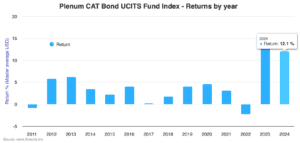Is it better to extract or root canal?
Is it better to extract or root canal?
Root Canal vs Tooth Extraction. A root canal has a better success rate than a tooth extraction because there are little to no future complications associated with the procedure. Root canals are performed by dentists to clean and restore an infected tooth. There is no need to extract or remove the tooth.
How good is Humana dental insurance?
Humana Insurance is a BBB accredited organization with an “”A+”” rating. There are a total of 398 customer complaints and the company has received a 3.71 out of 5 star composite score based on 45 customer reviews.
Is Humana owned by Walmart?
Back in March 2018, the Wall Street Journal recently reported that Walmart plans to purchase Humana. Humana was worth $37.5 billion at that time, and that purchase would be the largest acquisition so far for Walmart. Our topic today is revisiting the “”what and why”” behind Walmart’s purchase Humana. Aug 6, 2019
What is PPO good for?
A PPO is generally a good option if you want more control over your choices and don’t mind paying more for that ability. It would be especially helpful if you travel a lot, since you would not need to see a primary care physician. Oct 1, 2017
What does DPO mean for dental?
dental plan organization A dental plan organization (DPO) organizes services with a network of doctors. In exchange for a premium paid to the DPO, a member of the DPO can use any of the DPO’s network doctors at a reduced fee. This fee, often called a copay, is the only cost for the services administered in most cases. Feb 11, 2021
Is Delta Dental PPO the same as DPO?
Delta Dental Premier® and Delta Dental PPOSM are underwritten by Delta Dental Insurance Company in Texas. Delta Dental PPO is underwritten as a Dental Provider Organization (DPO) plan.
Is Delta Dental USA a PPO or HMO?
Delta Dental PPO, our preferred provider organization (PPO) plan, provides access to the largest PPO dentist network in the U.S. Delta Dental PPO dentists agree to accept reduced fees for covered procedures when treating PPO patients.
Does Medicare pay for dental bridges?
Unfortunately, Original Medicare (Parts A and B) does not include coverage for services like dental exams, cleanings, fillings, crowns, bridges, plates or dentures. There are some exceptions, such as when a hospital stay is involved, but otherwise you would have to pay out of pocket for any routine dental services. Feb 17, 2022
Does Medicare Part B cover dental work?
Yes, but Medicare Part B only covers dental expenses that are a medically necessary part of another covered service. It does not cover routine dental services, such as cleanings, or other standard procedures like dentures, crowns, or fillings.
Why is dentistry not included in Medicare?
Why isn’t your dentist included in this scheme. Good dental care is absolutely essential for your overall health, but it isn’t included in the Medicare scheme. This may be why a lot of people neglect their oral health, because good dental care can be expensive. Jan 15, 2020
Is it too late to straighten my teeth?
There’s no age limit to wearing braces. Even 70-year-olds can straighten their teeth! At Palencia Dental Care, we recommend orthodontics to patients of all ages to not only straighten teeth, but perfect the bite and improve oral health as a whole. Feb 12, 2020
What is dental Code D8999?
D8999 Unspecified orthodontic procedure, by report – Used for procedure that is not adequately described by a code.
Which is better byte or Invisalign?
While Invisalign is often best for people with more severe alignment issues or complications, Byte aligners are an excellent choice for people with mild to moderate smile problems. Mar 1, 2022
What does PPO 80 60 mean?
80% after deductible. 60% after deductible. Therapy Services – Speech, Occupational and Physical. Coverage for services provided by a physician or therapist. 80% after deductible.
What does out-of-pocket max mean?
The most you have to pay for covered services in a plan year. After you spend this amount on deductibles, copayments, and coinsurance for in-network care and services, your health plan pays 100% of the costs of covered benefits.




